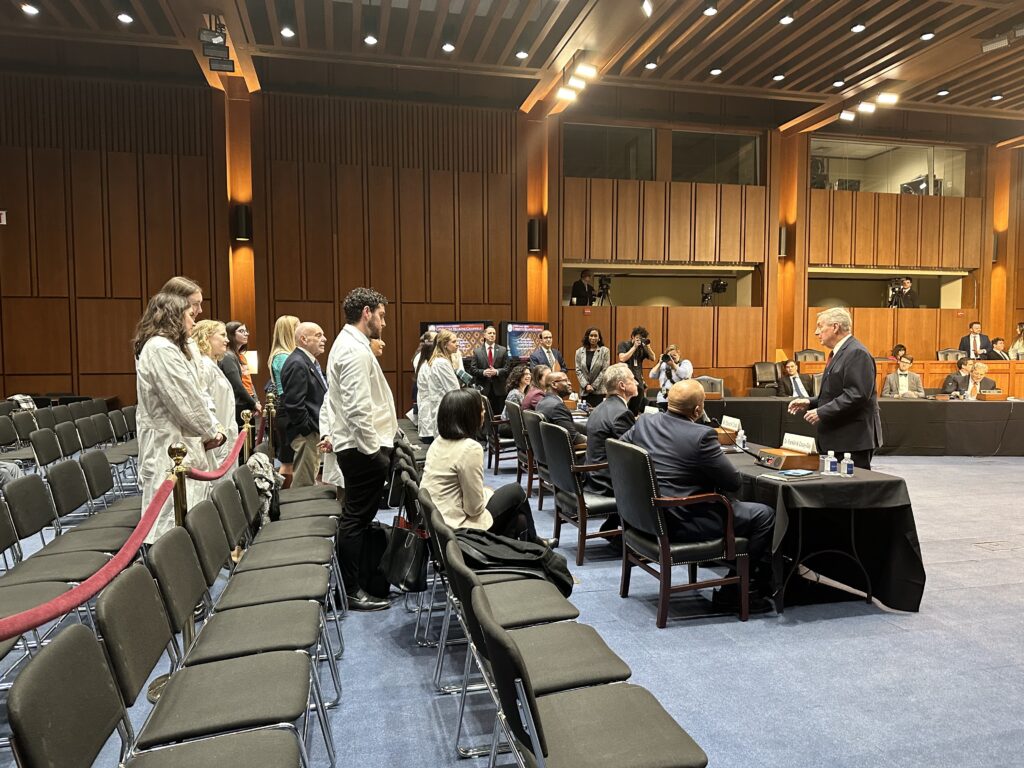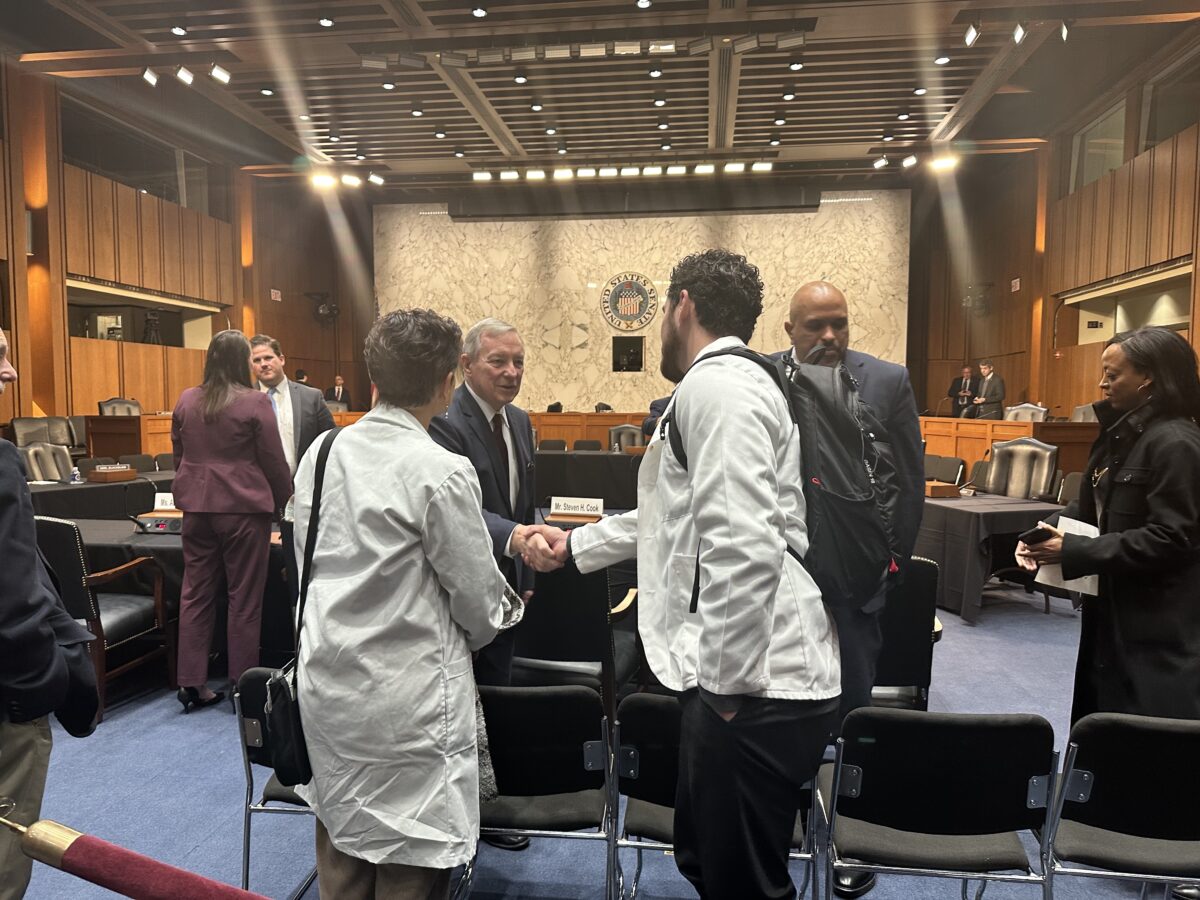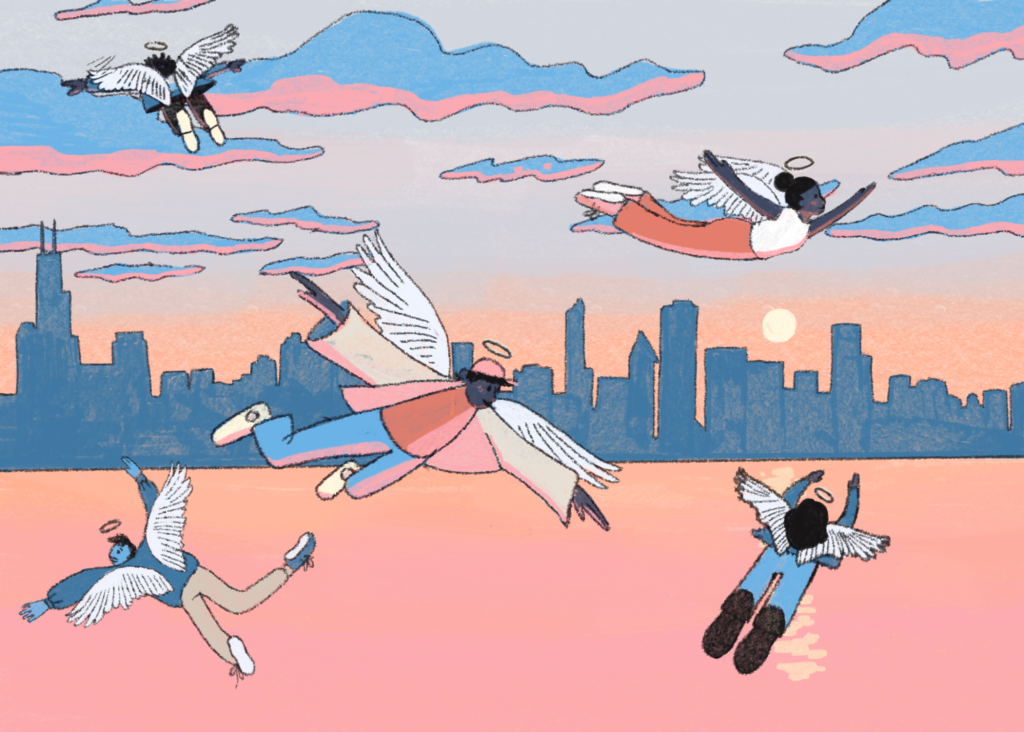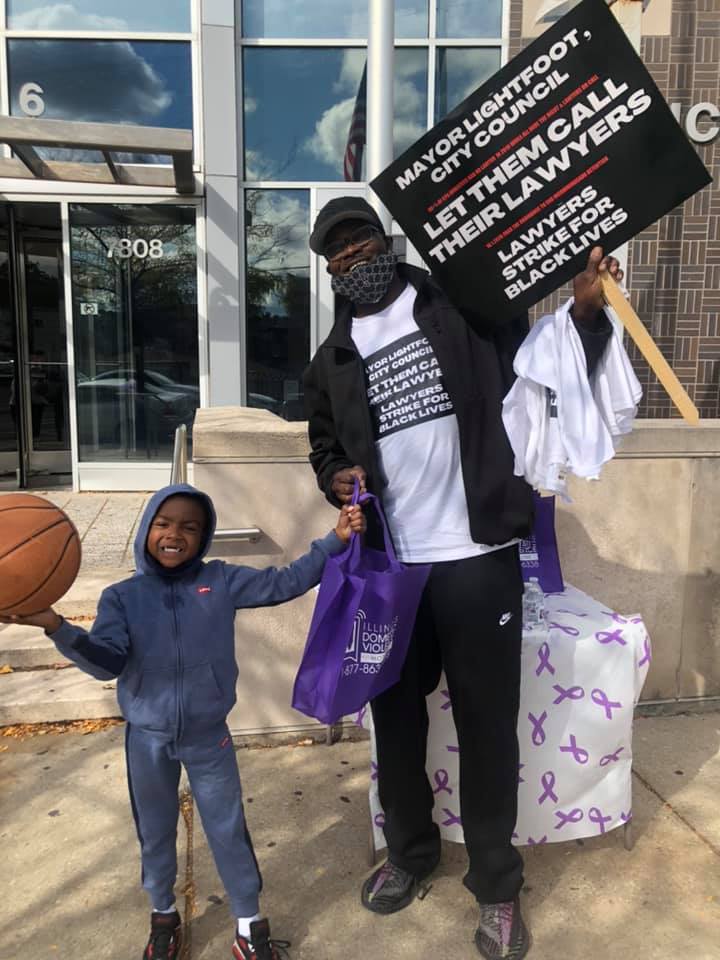WASHINGTON—Chicago-area medical experts and community health advocates brought their advocacy to Capitol Hill on Tuesday at a Senate panel on gun violence led by Sen. Dick Durbin (D-IL).
To local community leaders, gun violence is personal. Illinois has the twelfth-highest rate of gun homicides and gun assaults in the U.S., and it had an above-average increase in gun suicide and homicide rates from 2012 to 2021. Chicago community advocates and physicians are also some of those who have taken the most action.
“There are proactive ways we can respond to get in front of the problem,” said Franklin Cosey-Gay, director of the University of Chicago Violence Recovery Program and public health professional.
Cosey-Gay shared with lawmakers his experience in treating a twelve-year-old patient with a gunshot wound. The response did not merely involve the medical care involved with taking out the bullet and sending him home to heal. Rather, his team included child life specialists, social workers, and mental health counselors.
The team members identified the patient as being at high risk for potentially being shot again. So, they worked on transferring the patient and his family to a transitional housing shelter and offering continued assistance such as visits from trauma intervention specialists, emergency transportation, and referrals to community-based activities, he explained.
Since 2018, the Violence Recovery Program has worked with over 9,000 patients, 85 percent of whom were Black and 70 percent of whom were gunshot wound victims. Witnesses also told the panel it was important to recognize that gun homicides in Chicago and across the country disproportionately harm Black Americans, therefore requiring community-based organizations to supplement medical care and work on preventing future violence.
“When it comes to addressing issues connected to trauma, you have to really understand the role of trust,” Cosey-Gay said. “Having individuals that understand that life is an important first step.”
Experts described other innovative approaches to gun violence that can serve as a model for broader congressional action.
Vaughn Bryant serves as the executive director of the Metropolitan Peace Initiatives, a network of community-based organizations in Chicago neighborhoods hardest hit by gun violence. He explained to lawmakers the positive ripple effect trauma-informed care can have on communities.
“If we can get to those people and help heal those people, then they’re going to be not only better for their communities but better for their families,” Bryant told the panel. Metropolitan Peace Initiatives offers victim services such as mental health support, transitional employment and safety planning. The organization also targets at-risk individuals through community-based interventions such as negotiating non-aggression agreements to combat street violence and hosting recreational events in parks.

Many doctors and medical students donned their white lab coats and attended Tuesday’s hearing to demonstrate how they are working on the front lines.
“The white coats that are represented in the audience here are men and women who have given their life to medicine and have to face the products of these violent actions and try to keep these poor people alive for another day,” Durbin said.
Physicians in Illinois also tuned in to watch, including Dr. Deanna Behrens, a pediatric critical care physician at Advocate Children’s Hospital in Park Ridge who also serves as the chair of the Gun Violence Prevention legislative committee for the Illinois chapter of the American Academy of Pediatrics.
“I have seen kids who have been injured by guns in every way possible,” she told the Weekly. “Kids who were accidentally shot by siblings, a three-year-old child who shot himself in the head—because we know that kids two to three and up have the strength to pull a trigger—kids or adolescents who tried to harm themselves.”
Firearms are the leading cause of death among children and teens in Illinois, and Behrens herself has witnessed the toll gun violence has taken on young people.
In-hospital interventions are crucial, she said, as is the work of community partners. But further legislative action, both at the state and national level, is needed, Behrens added.
“Normalizing the fact that gun violence is a public health epidemic and destigmatizing talking about guns is a way for us as a society to invest in decreasing the burden of gun violence on children,” she said.
Behrens called on lawmakers to implement similar approaches Washington has taken to address other public health problems in the past, such as automobile accidents and deaths from smoking. This involves greater data-sharing efforts across hospitals, such as those implemented by Durbin’s Chicago Hospital Engagement, Action and Leadership, or HEAL, initiative, she said.
“It is not unusual for my colleagues on the other side of the table to talk in negative terms about [Chicago],” Durbin said. “I’m honored to represent it.”
Behrens said that while her group’s advocacy efforts have been successful at passing an assault weapons ban and safe storage rules within Illinois, other states must follow suit. Over half of the guns used in Illinois crime are from other states that have looser restrictions.
“This is not something that has happened overnight,” she said. “It is something that’s been going on for decades.”
Shravya Pant is a sophomore undergraduate at Northwestern University’s Medill School of Journalism studying journalism and biology. She is currently a congressional health reporter for the Medill News Service in Washington, D.C. and hopes to attend medical school.




